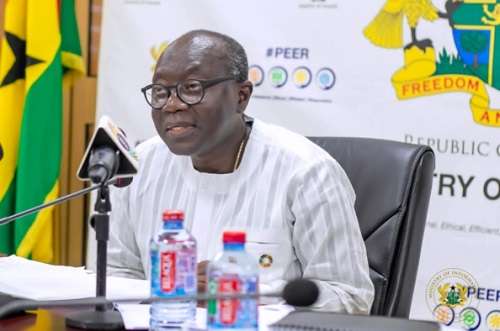The global economy has been rocked by a wave of uncertainty in recent years, with many countries grappling with high levels of debt and growing concerns about their long-term economic sustainability. Ghana, a country long known for its economic potential, has not been immune to these challenges. However, recent efforts by the government to reduce the country’s debt burden have been met with cautious optimism, with the country making significant strides towards greater fiscal stability.
At the forefront of Ghana’s debt reduction strategy is the Domestic Debt Exchange Programme (DDEP), a scheme launched in December 2019 aimed at reducing the country’s domestic debt. The DDEP allows holders of government debt to exchange their holdings for longer-term bonds with lower interest rates, with the exchange being voluntary and the bonds being offered at a premium to the market value of the debt being exchanged. The scheme has been successful in reducing the country’s debt servicing costs and improving its debt sustainability.
However, recent reports have suggested that the government may be planning a second round of DDEP with pension funds, a move that has caused concern among pension fund holders. In response to these reports, the Minister of Finance for Ghana, Ken Ofori-Atta, has sought to clarify the government’s position, emphasising that the government’s pension funds were exempted from the DDEP in line with the memorandum of understanding (MoU) signed with Organised Labour in December 2022.
Speaking at the IMF/World Bank Spring Meetings in Washington DC, Ofori-Atta noted that the government is in discussions with Organised Labour on how to maintain the country’s debt sustainability process and reduce debt servicing costs further. He emphasised that these discussions are ongoing and that the government is exploring options such as cocobills and domestic dollar bonds. He added that the government is committed to maintaining debt sustainability, as outlined in the MoU signed with Organised Labour.
The Minister’s comments have helped to allay concerns among pension fund holders and clarify the government’s commitment to debt sustainability. The government’s ongoing discussions with Organised Labour suggest that it remains committed to addressing the country’s debt challenges and ensuring a stable economic future for Ghana.
Despite the challenges facing Ghana, the country has made significant progress in recent years in improving its debt sustainability and attracting foreign investment. The government has worked closely with international organisations such as the IMF and World Bank to implement a range of measures aimed at improving fiscal management and reducing debt. As a result, the country has seen strong growth in foreign investment, with investors increasingly seeing Ghana as a stable and attractive destination for investment.
However, challenges remain. Ghana’s debt-to-GDP ratio remains high, and the country faces significant external risks such as volatility in commodity prices and exchange rates. The government’s commitment to debt sustainability and ongoing discussions with Organised Labour suggest that it remains focused on addressing these challenges and ensuring a stable economic future for the country.
Ghana’s efforts to reduce its debt burden and improve its fiscal sustainability have been met with cautious optimism. While challenges remain, the government’s commitment to debt sustainability and ongoing discussions with Organised Labour suggest that it remains focused on addressing these challenges and ensuring a stable economic future for the country. The global economic outlook may be uncertain, but Ghana is demonstrating that with the right policies and strategies, it is possible to build a more sustainable and prosperous future.
Source: Norvanreports

